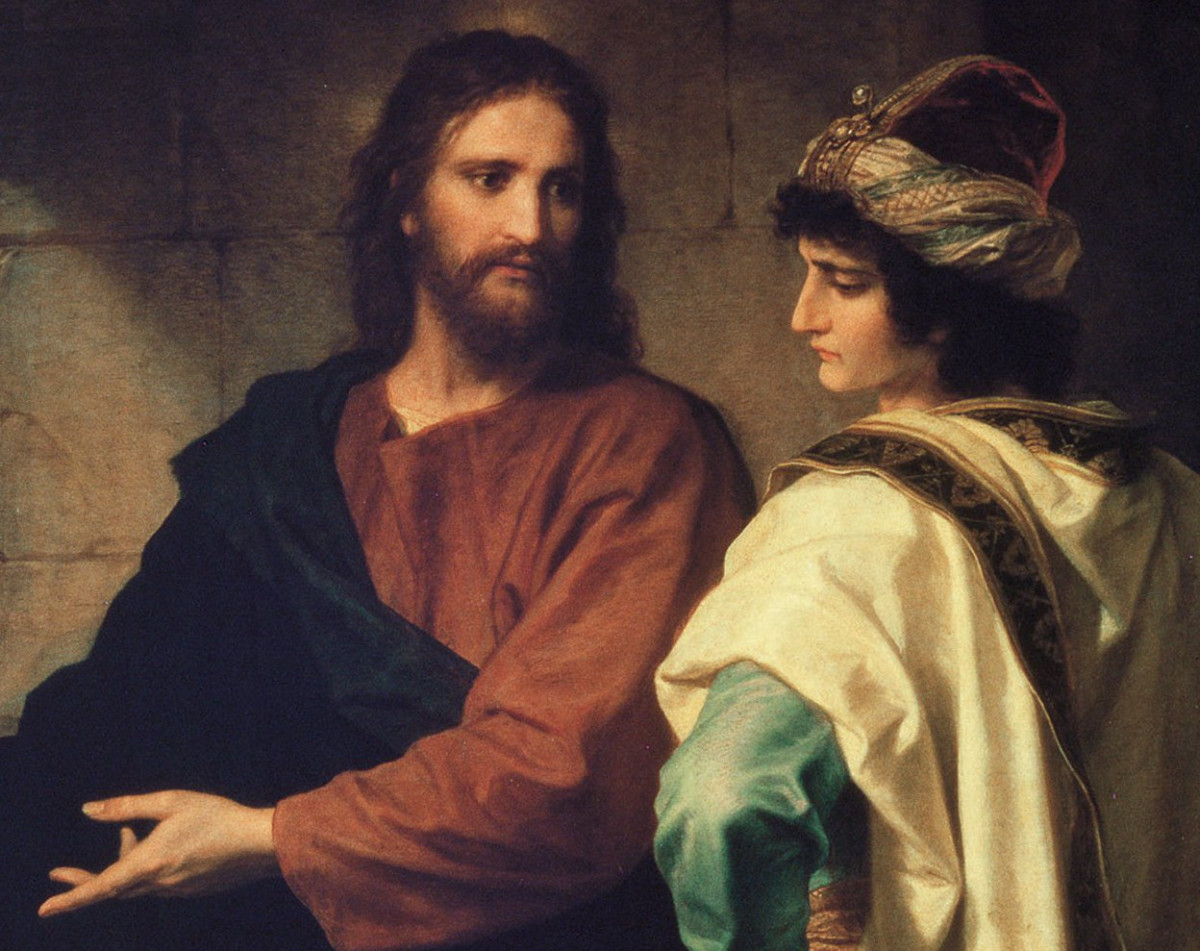
And they were greatly astonished, saying among themselves, “Who then can be saved?” But Jesus looked at them and said, “With men it is impossible, but not with God; for with God all things are possible.”
Let us recall what we have learned of God so far in this text. He alone is good. Only He is able to “be saved” or enter life or enter the kingdom of God. Only God can sell off everything, give to the poor, and take up the cross.
God, for whom all things are possible, uses this omnipotence to give up everything and take up a cross. What a crystal clear statement about Who Jesus is and what He has done for us. At the same time, what a crystal clear statement about humanity’s inability to save himself, something Jesus already laid down at the beginning of the Gospel, “No one is good but God alone.”
As we look at this culminating statement of Jesus, “With men it is impossible, but not with God; for with God all things are possible,” it helps a bit to look outside the text and see some context.
Here’s what precedes the Gospel: “Let the little children come to Me, and do not forbid them; for of such is the kingdom of God. Assuredly, I say to you, whoever does not receive the kingdom of God as a little child will by no means enter it.”
Recall, Jesus just called His disciples “children” when He repeated His teaching about the difficulty of entering the kingdom of God for the rich: “Children, how hard it is for those who trust in riches to enter the kingdom of God!” The word Jesus uses here is not the same as the “Let the little children” text, because clearly the disciples are not toddlers. But if you were to emphasize that the disciples should be “as little children,” as Jesus does in that passage, you would use the very term Jesus uses when He says, “Children, how hard it is…” The term here means more like, “someone dependent on another, like a child.” This is exactly what Jesus was teaching in the text immediately preceding the Gospel.
So given that, we get some depth to Jesus’ teaching to the disciples after engaging the rich man. We have two “enter into the kingdom of God” texts. Here are the statements. The first is, “whoever does not receive the kingdom of God as a little child will by no means enter it.” The second is, “Children, how hard it is for those who trust in riches to enter the kingdom of God!” Then we learn that with man this is impossible, but not for God.
Jesus has just roped the disciples into the kingdom of God by calling them “children”! What is it about children that makes them the best candidates for receiving the kingdom of God? Likely it’s that they do just that, they receive. They don’t run up to Jesus seeking what they must do, like the rich man, but are brought to Jesus, taken up in His arms, and blessed. It’s pure reception.
Do children give up everything, give to the poor, and follow Jesus? Usually not, but what they do is receive the kingdom of God and get blessed, as they are hoisted onto Jesus’ lap. They receive. They receive Jesus and do not, as the rich man did, go away.
Yes, they don’t go away. They follow Jesus. I believe that’s the critical moment in the Gospel for this week, the moment the rich man went away. He could have stuck with Jesus a few seconds longer and heard Him say, “With man doing what I just told you is impossible, but not for God.” He could have learned how his original “Good teacher” comment was on the right track. Instead, as soon as the rich man heard about giving up possessions, he bolted. He should have stuck around just a few seconds longer. Who knows, Jesus may have given him a more comforting teaching. After all, Lazarus was rich. The other disciples had possessions. You could certainly have possessions and be a disciple. But he couldn’t stick around.
This point is similar to one we see when Jesus first starts teaching the parables. There, we learn Jesus taught parables so that hearing, some would not understand. By this we understand that the disciples are given to know the mysteries of the kingdom of heaven, but not others. Yet, a few verses after the Parable of the Sower, we learn the disciples don’t understand it! So, what’s the difference between those who “hear, but do not understand” and the disciples, who heard but clearly did not understand? The difference is Jesus later explained it to them, because they stuck around! Others as soon as the parables got too confusing left Jesus. The disciples stuck around to hear Jesus explain what He meant.
Same here in this week’s Gospel. The rich man didn’t stick around. He didn’t follow Jesus through to the end of His teaching. The disciples did. And because they did, they were richly rewarded with a beautiful teaching, introduced and hinted at when Jesus called them “children.” Of such as these are the kingdom of God.